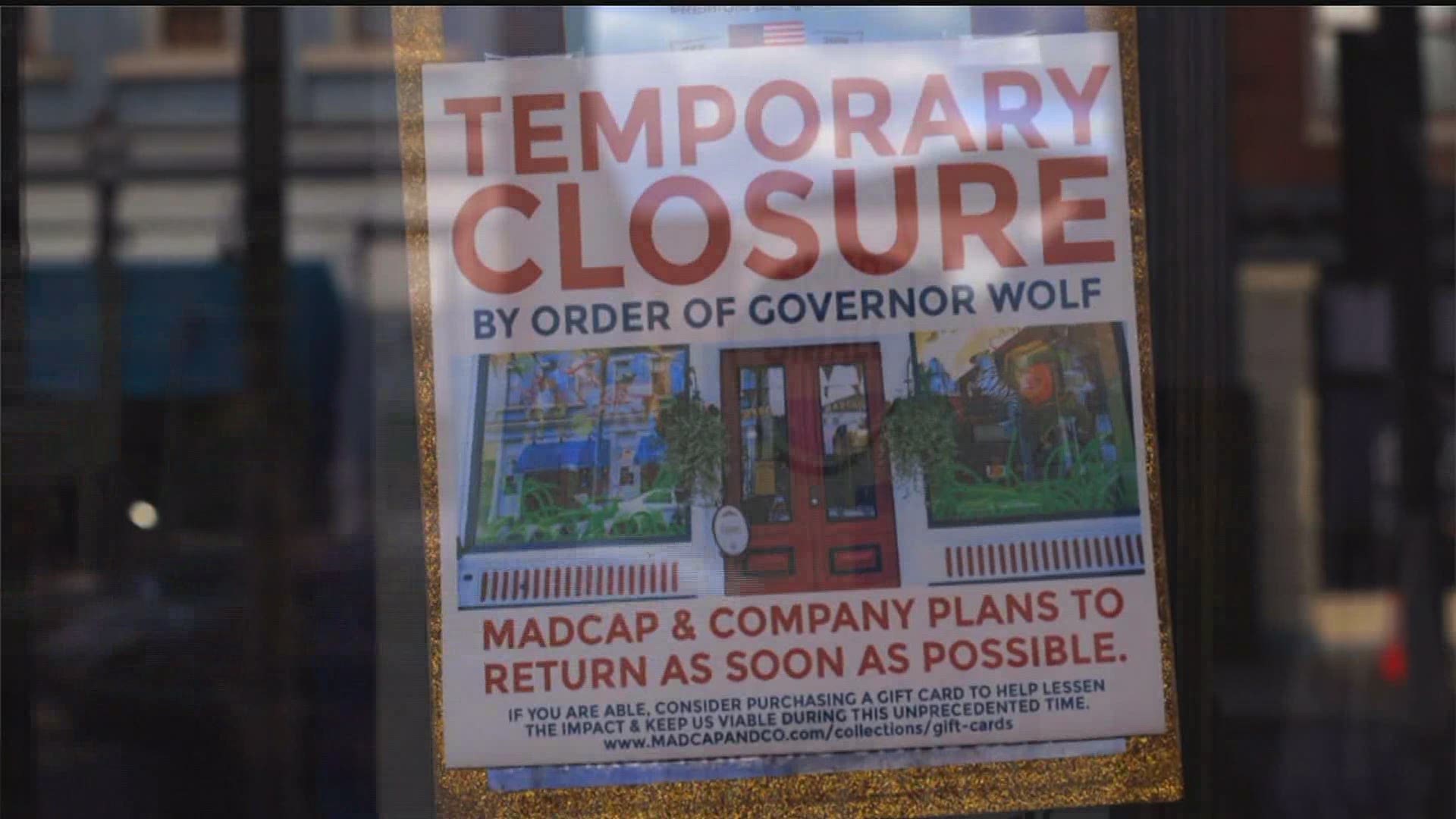MECHANICSBURG, Pa. — Karl Zimmerman paid thousands of dollars into an insurance policy he thought was a lifeline.
“Frustrating, maddening, infuriating. I feel like I’ve been duped,” said Zimmerman, owner of New York Fitness Club in Mechanicsburg.
Shortly after Zimmerman closed his gym due to Governor Tom Wolf’s order to mitigate the spread of COVID-19, he discovered his business interruption insurance will not cover his financial losses.
“They were denying all coronavirus claims, but boy if you’re paying in for something, you’d really like to get it back,” Zimmerman said.
Business interruption insurance typically replaces income lost due to disaster-related damage. Distressed businesses across the state are realizing these policies do not cover closures stemming from a pandemic. Insurers believe they should not be responsible for a global crisis.
“Not only would it put the entire industry in peril, but that’s just not possible if everyone in the risk pool is subject to the same loss, at the same time, with extreme severity. So, something like a pandemic is just not an insurable event,” explained Erin Collins, Vice President of State Affairs for the National Association of Mutual Insurance Companies.
RELATED: State Dept. of Labor & Industry opens new COVID-19 job portal to serve residents looking for work
The coverage gap has sparked interest among some Pennsylvania lawmakers. A proposed bill, House Bill 2372, would force insurers to pay for business losses related to COVID-19. It would apply to insurance policies issued to businesses with fewer than 100 employees.
The proposed legislation also allows insurers to receive reimbursement for business interruption insurance claims paid due to COVID-19. The bill is currently in the State House Insurance Committee.
After the SARS outbreak in 2003, some insurance companies have added exclusions to their policies related to communicable diseases and viruses. House Bill 2372 would enable insurers to expand their policy coverage to cover COVID-19 claims, despite that exclusion.
Zimmerman said he bought the insurance with the expectation it would provide a safety net during any crisis that results in a loss of income. He is hoping life will get back to normal soon, and wonders what will happen if small businesses do not get the help they desperately need.
“I’m hopeful that things can reopen by June 1. I’m cautiously optimistic for mid-May, but the longer it goes, the more difficult it gets and the more folks are going to need these kinds of insurances or help from the government,” declared Zimmerman.
Some attorneys advise business owners to do what Zimmerman did—file a claim with your insurance company, even if you get denied.

